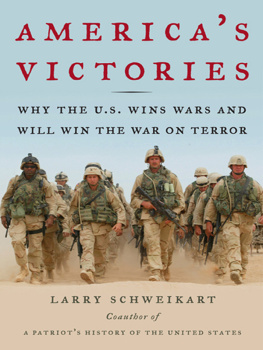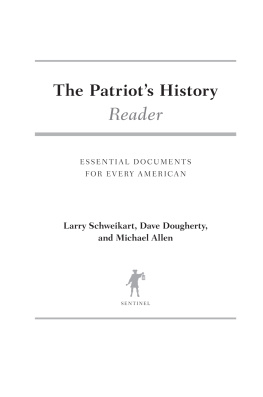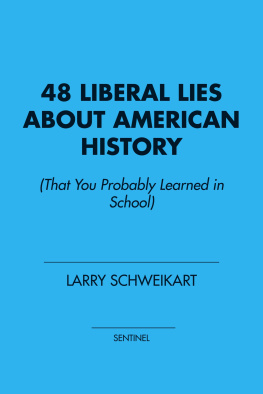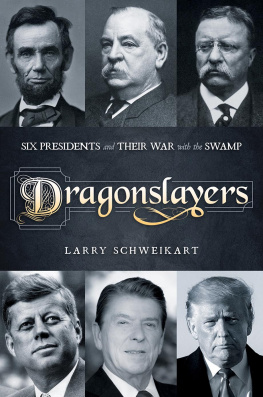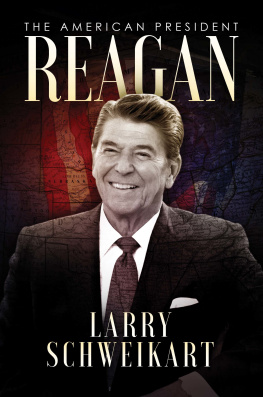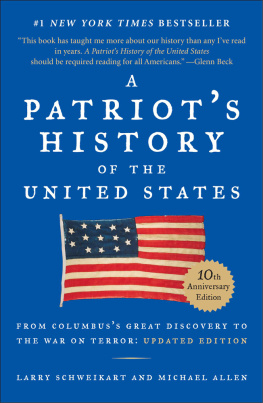Banking in the American West from the Gold Rush to Deregulation , coauthored with Lynne Pierson Doti (1991)
Americas Victories
Why the U.S. Wins Wars and Will Win the War on Terror
Larry Schweikart
SENTINEL
SENTINEL
Published by the Penguin Group
Penguin Group (USA) Inc., 375 Hudson Street, New York, New York 10014, U.S.A. Penguin Group (Canada), 90 Eglinton Avenue East, Suite 700, Toronto, Ontario, Canada M4P 2Y3 (a division of Pearson Penguin Canada Inc.) Penguin Books Ltd, 80 Strand, London WC2R 0RL, England Penguin Ireland, 25 St. Stephens Green, Dublin 2, Ireland (a division of Penguin Books Ltd) Penguin Books Australia Ltd, 250 Camberwell Road, Camberwell, Victoria 3124, Australia (a division of Pearson Australia Group Pty Ltd) Penguin Books India Pvt Ltd, 11 Community Centre, Panchsheel Park, New Delhi 110 017, India Penguin Group (NZ), Cnr Airborne and Rosedale Roads, Albany, Auckland 1310, New Zealand (a division of Pearson New Zealand Ltd) Penguin Books (South Africa) (Pty) Ltd, 24 Sturdee Avenue, Rosebank, Johannesburg 2196, South Africa
Penguin Books Ltd, Registered Offices:
80 Strand, London WC2R 0RL, England
Copyright Larry Schweikart, 2006
All rights reserved
LIBRARY OF CONGRESS CATALOGING - IN - PUBLICATION DATA
Schweikart, Larry.
Americas victories : why the U.S. wins wars and will win the war on terror / Larry Schweikart.
p. cm.
Includes bibliographical references and index.
ISBN 978-1-1012-1781-8
1. United StatesHistory, Military. 2. United StatesCivilization. 3. National characteristics,
American. I. Title.
E181.S38 2006
355'.033573dc22 2005057632
Without limiting the rights under the copyright reserved above, no part of this publication may be reproduced, stored in or introduced into a retrieval system, or transmitted, in any form or by any means (electronic, mechanical, photocopying, recording or otherwise), without the prior written permission of both the copyright owner and the above publisher of this book.
The scanning, uploading, and distribution of this book via the Internet or via any other means without the permission of the publisher is illegal and punishable by law. Please purchase only authorized electronic editions and do not participate in or encourage electronic piracy of copyrightable materials. Your support of the authors rights is appreciated.
To Captain Steve Battle and Captain Craig Bender,
United States Army,and all my former students now serving
in the finest military in history
Acknowledgments
A n old Army saying is that amateurs talk tactics, while professionals talk logistics. When it comes to writing a book, the public sees the writer, but there are numerous people whose efforts helped make it possible. First, thanks to my agent, Ed Knappman, who, through his dedication to A Patriots History of the United States , opened the door for whatever success greets Americas Victories . Likewise, Bernadette Malone, my editor at Sentinel, has remained an advocate of my work and a good critic of my prose.
For this book in particular, Im indebted more to professional soldiers, sailors, airmen, and Marines than to professional historians. One group, whom I called my military brains trustsome retired vets, some currently servingignored the militarys maxim, Never volunteer for anything, and willingly helped me out, offering important viewpoints, corrections, and supplemental information. My cousin, Lieutenant Colonel Michael Jackson (USMC, Ret.), has been a consistent critical reader of my manuscripts. Professor Jeff Hanichen, USMC (Ret.), provided a thorough reading and great encouragement. Captain Chris Koren, USMC, Sergeant Christopher Cliukey (USAF, Ret.); Major Adrian DeNardo (USAF, Ret.); and Captain Danjel Bout, U.S. Army all made important contributions.
Two reviewers were particularly thorough and thought provoking: Clayton Cramer, a specialist in firearms in the early Republic, and Robert Lynn, a military history book reviewer. They saved me from innumerable errors, introduced many concepts I had not thought through (or thought of at all), and sharpened my arguments. Military historian Loren Gannon (USA, Ret.), at the University of Dayton, and civilian consultant to the U.S. Army and the U.S. Air Force Jeff Head also enhanced my understanding with long talks about tactics, strategy, and equipment.
Also at the University of Dayton, as always, Cynthia King provided typing and editing support, and is a proofreader with an excellent eye; student researchers, including Danielle Elam and Carl Ewald, helped dig out articles and maps; and Ron Acklin, of UDs Print and Designa true virtuoso of computer imagerydrew and created all the maps. My wife, Dee, stayed out of my hair for hours on end while I wrote this, and my son, Adam, likewise managed to give me time to write. (Maybe his new car had something to do with it.)
Larry Schweikart
Centerville, Ohio
Contents
List of Figures
Introduction
W hy do Americans win wars? Even granting that Vietnam was a loss (although the military was never, ever defeated in an actual battle), and Korea was a tie, over the course of two hundred years the armed forces of the United States have whipped the British Empire (twice), beaten a Mexican army (against all European expectations), fought a fratricidal civil war that resulted in higher casualties than all previous wars put together (due to the fact that officers and soldiers on both sides were deadly effective), and crushed the Plains Indians with a minimal number of troops. American forces then dispatched the Spanish in less than a year (when, again, most Europeans thought Spain would win), helped the Allies evict the Germans from France, and dominated an international alliance that simultaneously beat the Nazis, Japanese warlords, and Italian fascists. During the Cold War, we battled the North Koreans and their Chinese allies to a draw on the Asian mainland, then staved off a Soviet-supported invasion of South Vietnam for more than a decade. After the fall of the USSR, the U.S. military twice decisively crushed the biggest armed force in the Middle East, after which we essentially invited every foreign terrorist in the region to enter Iraq and join the fight. Squeezed in between two victories over Iraq, American forces did what the British and Russians could not do by invading Afghanistan and staying. Mix in with this incredibly impressive record the fact that even before the United States had a large standing army, a handful of Marines and their mercenary allies spanked the Tripolitan pirates; then while still on the road to superpower status, we soundly defeated a Filipino insurgency; and for good measure kicked the Cubans out of Grenada in 1982. Probably the most astounding success was that the United States defeated the superpower Soviet Union in the Cold War without firing a shotor releasing a nuclear weapon.
Why is the American military so successful, not just recently, but historically? Why do Americans win wars? Are there distinctly (or predominantly) American characteristics that define what Russell Weigley once called an American Way of War? If so, are these not common to all western nations, and, if not, what makes us even more successful than historically great western military powers such as Great Britain, France, or Germany?

